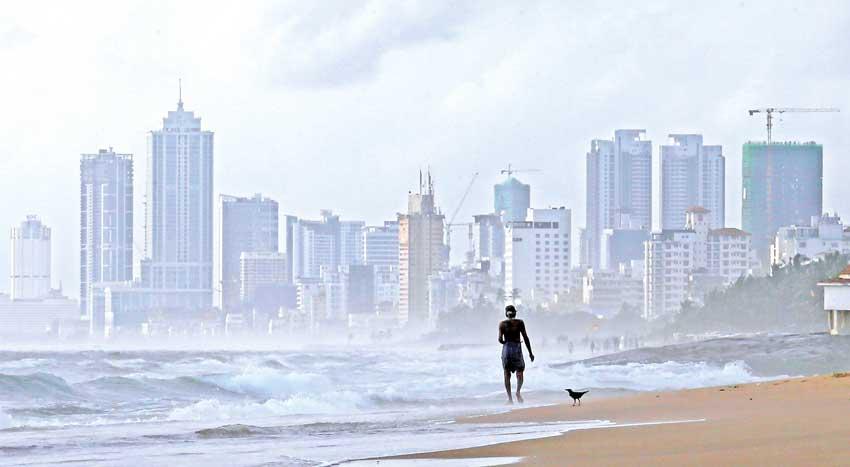Reply To:
Name - Reply Comment

 Asia’s emerging economies are at different stages in combatting the Covid-19 pandemic. For some, the light at the end of the tunnel is getting brighter as social distancing measures are being eased and economic activity is starting to ramp up again. Others are still grappling with outbreaks and lockdowns.
Asia’s emerging economies are at different stages in combatting the Covid-19 pandemic. For some, the light at the end of the tunnel is getting brighter as social distancing measures are being eased and economic activity is starting to ramp up again. Others are still grappling with outbreaks and lockdowns.
Whatever stage they are at, though, these markets must also continue to think beyond the crisis, and about what can be done to safeguard and improve their long-term economic prospects.
Developing nations across Asia – Sri Lanka included – have of course not been immune to the social and economic disruption caused by COVID-19. Travel restrictions and distancing measures have hit trade and jobs around the globe.
Budget deficits have widened and overall levels of debt will continue to increase across much of the region. Any recovery in tourism and business and consumer confidence is likely to be overshadowed by lingering concerns about potential new outbreaks, and by the tough global economic backdrop.
Despite the near term challenges, it’s important to remember the underlying trends that underpin many developing nations’ long-term growth potential.
Most of the economies in emerging Asia are increasingly capable of delivering innovation and higher-end manufacturing and services. The emergence of numerous home-grown e-commerce, e-payments and other companies testifies to this. The COVID-19 fall-out could, if anything, boost the quest for new ideas and technologies, as households, companies and entrepreneurs seek out new ways of buying, selling, banking, learning and communicating with each other.
And as the 2020 crisis picked up steam, governments and central banks were quick to provide assistance with interest rate cuts and a slew of fiscal, liquidity and other measures to support households and businesses.
In Sri Lanka, the government through the Central Bank of Sri Lanka, announced a new refinance facility for businesses adversely affected by the pandemic, and many financial institutions offered various relief measures for both corporates and individuals to help them cope with the initial economic impact of COVID-19. Social distancing measures are starting to ease off and economic activity is set to cautiously ramp up post the recently-concluded parliamentary elections. It’s become possible to envisage a future where working from the office, attending school and travelling across borders may become possible again
Still, with COVID-related obstacles set to linger, policymakers would do well to supplement their immediate economic support measures with bold steps aimed at increasing their economies’ attractiveness as places to invest and do business in.
Areas of focus
There are three broad areas of focus.
First, improving the local operating environment–making it easier to do business. That spans everything from reducing red tape and corruption, to dialling back restrictions on incoming investment, and labour market reforms, for example. Many countries have made laudable progress on these fronts – building on this will stand them in good stead.
Second, boosting competitiveness and productivity through investment. Specifically in transport and energy infrastructure, telecoms and internet connectivity, healthcare, education and smart, low-carbon ways to manage urbanization. All will be key to bolstering developing economies’ long-term growth prospects, and to dealing with technological advances such as robotics and automation, 3-D printing and Artificial Intelligence. Building infrastructure well from the outset – and building back better after each upset or crisis – is crucial to each economy’s long-term growth and resilience.
Linked to this is the third area, of climate change preparedness. Southeast Asian and South Asian nations are particularly vulnerable to the effects of climate change, with low-lying megacities like Dhaka, Ho Chi Minh City, Jakarta, Bangkok and Mumbai highly susceptible to storms and sea level rises. Increasingly, a country’s or region’s ability to withstand climate-linked threats – including the ability to raise and direct funding intelligently towards greening and climate-proofing the local economy – will be a factor in where companies and investors direct their business.
The COVID-19 pandemic has taken a human and economic toll that was unimaginable just months ago. Its impact will linger for months, if not years. But like every crisis, it also represents an opportunity for policy makers and business communities to rethink and accelerate their reform agendas. Those that grasp the opportunity could not just move their economies to the proverbial light at the end of the tunnel, but bolster their solid fundamentals for the world well beyond it.
(The writer is Head of International and Head of Strategy and Planning – Asia-Pacific, HSBC)